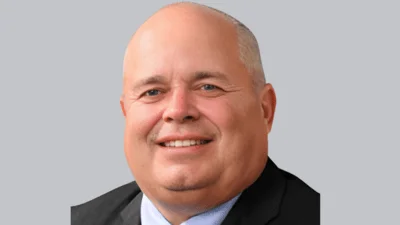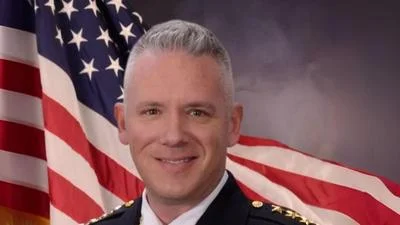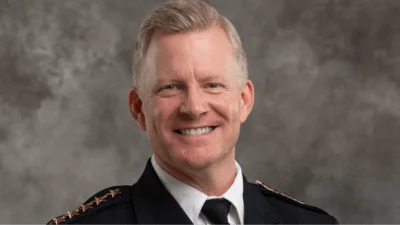OSF Saint Luke Medical Center recently issued the following announcement.
Looking for a leadership role? OSF HealthCare has openings.
“Constant openings,” said Paige Klinck, an executive recruiter for OSF HealthCare.
Some of those openings are for new positions, as OSF continues to expand. Many others arise due to promotions.
“I have a director becoming a vice president, so that opens up a director position. I have managers becoming directors, so that opens up manager positions,” Paige said. “It’s constant openings.”
But how do you build the resume that will get you an interview for one of those open leadership positions? Where do you gain the experience required in the job posting so your application gets past the first review?
If you have no leadership background but aspire to become a leader – a hospital president, a manager of pharmacy operations, a superintendent of nursing patient care or any of the dozen other leadership positionsposted on osfhealthcare.org in August – how do you get there?
Glad you asked.
How to climb the ladder
Jen Hopwood, RN, DNP, NE-BCJen Hopwood
RN, DNP, NE-BC
Jen Hopwood, RN, DNP, NE-BC, started her career 21 years ago as a bedside nurse in the intermediate medical-surgical unit at OSF HealthCare Saint Francis Medical Center in Peoria, Illinois. Today, she is the chief nursing officer and vice president of patient care services.
An executive office with a big window overlooking Glen Oak Avenue at OSF Saint Francis was not her plan. If anyone had suggested such a thing, “I would have said, ‘Absolutely not, that has no appeal to me,’” she said.
All Jen wanted was to care for patients to the best of her ability. But sometimes, she was frustrated by impediments. That’s when her natural leadership instincts kicked in.
“My siblings would tell you I was always the one in charge when my parents were gone,” Jen said. “They didn’t put in me in charge, I just kind of assumed the role. When something needs to be done and there’s an absence of someone taking control, I’m going to say, ‘Let’s get it done, and here’s how we’ll do it.’”
Around the hospital, Jen stepped into a lot of roles that had leadership responsibilities, but no official titles. She became a CPR instructor and volunteered for committees. She joined the shared-governance council. If there was a problem that a frontline nurse’s input might help solve, Jen jumped in to help solve it.
Her supervisors recognized her passion, and Jen landed a role as a charge nurse. Over time, she was promoted to assistant manager in the surgical intensive care unit (ICU), then manager, then to the OSF HealthCare corporate office as operations director for tele-ICU (also known as eICU or electronic ICU), executive director of OSF TeleHealth Services and finally her current position.
At every step, though, Jen said she has been driven by one primary goal.
“I want to make this a great place for patients to receive care, and being an employee of this organization, I want to make this a great place for people to work,” Jen said. “I don’t want one without the other.”
What makes a good leader
Leadership roles require the ability to manage a budget and analyze data. Leaders need to handle performance evaluations and maintain staff discipline. To a large extent, those skills can be taught in classrooms.
But ask Paige what OSF is looking for as she recruits leadership candidates, and this is what she says:
“We want someone who is a good communicator, who’s strong at relationship-building and who has the ability to empower the people under them. A good leader is always willing to step down and do the work with you; not someone who says, ‘Oh, that’s not my job description.’ Being a good leader means going outside your normal job description and helping your team.”
That sort of servant leadership isn’t simply a concept at OSF HealthCare. It’s a way of life.
“I don’t know why you wouldn’t want to be a servant leader,” Jen said. “In this organization, it’s very transparent if you’re not a servant leader. Not being a servant leader almost gives the impression you have an agenda of your own.”
A selfish agenda won’t fly far at OSF, where the Sisters’ Mission is paramount: “to serve persons with the greatest care and love.” Patients are first, of course, but the Mission extends to everyone.
Leadership preparation advice
Jen and Paige echo each other with the advice they offer any OSF Mission Partner who aspires to become a leader in the organization – whether that role is in a medical group, the unit of a smaller hospital or the corporate administration offices.
Their bullet points:
Be proactive and get involved, volunteering for committees and the like.
Look for opportunities to work with others and solve problems.
Develop an ongoing dialogue with your supervisor to help them see you care about the organization and that you want to make it better.
Let your supervisor know your interests and ask to save some time during Mission Partner rounding to discuss leadership skill development.
Seek and take advantage of educational and professional development opportunities.
Enroll in pertinent classes at a local university or community college.
Show your workforce commitment in everything you do.
“I suggest a 70-20-10 learning model,” Paige said. “That’s where 70% is on-the-job training, 20% is from coaching and mentoring by someone who knows what you want your career path to be, and 10% you’re on your own to enroll in a class. Take a finance class, or some HR (human resource) courses.”
Original source can be found here.






 Alerts Sign-up
Alerts Sign-up